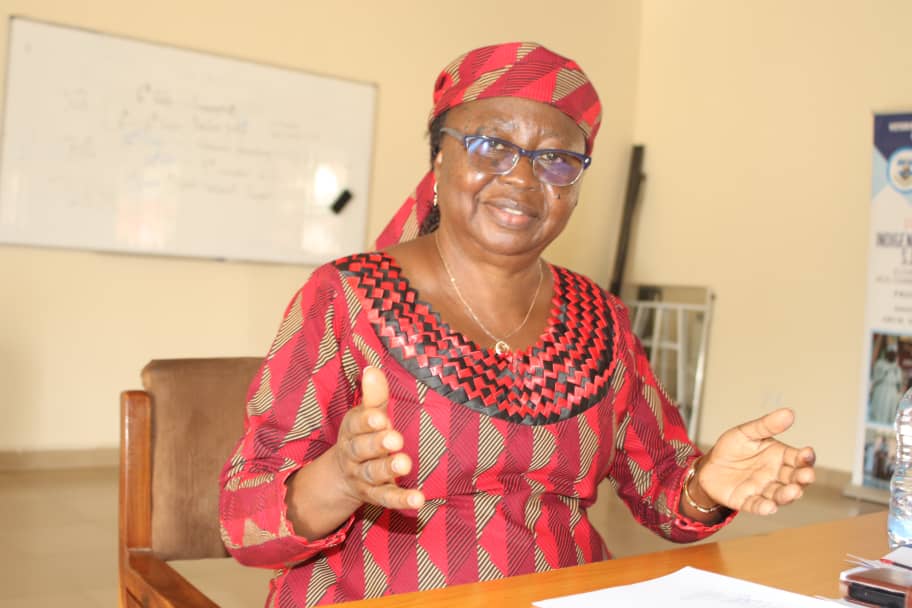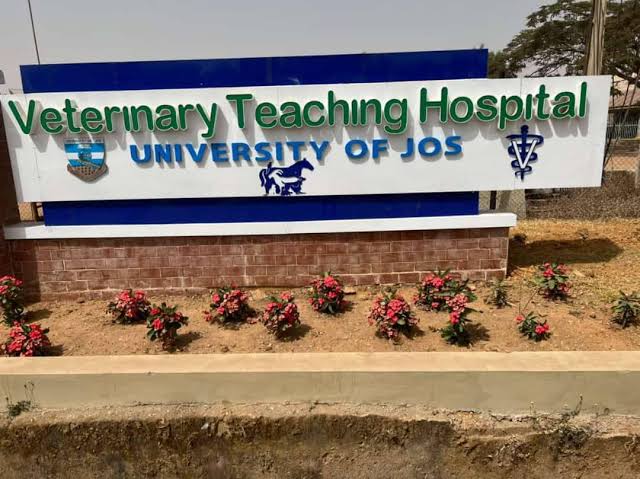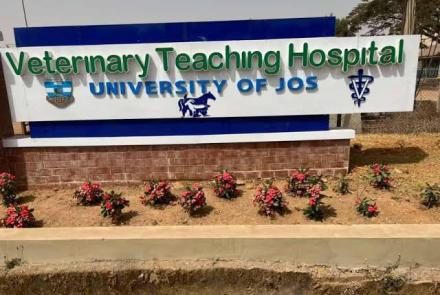Unijos Offers Support to Poultry Farmers Following Avian Influenza Outbreak
UNIJOS ALERTS STAFF ON AVIAN INFLUENZA OUTBREAK, OFFERS SUPPORT TO POULTRY FARMERS
The University of Jos Veterinary Teaching Hospital has sued for caution among members of the University community involved in Poultry Farming. The notification comes amidst reports of an outbreak of Avian Influenza, also known as Bird Flu in Bassa Local Government Area. In a bid to combat the resurgence of H5N1 Avian Influenza, the Acting Director of the University’s Veterinary Teaching Hospital, Professor Lami Lombin, issued the alert following reports of a devastating outbreak that had claimed the lives of nearly 300 birds in a local Farm.
The outbreak, which has been confirmed by the National Veterinary Research Institute (NVRI), Vom, marks a troubling return of the disease, first detected in Nigeria in 2006. With the virus’s potential to wipe out entire flocks of Poultry, and its Zoonotic nature, meaning it can spread from animals to humans, members of the University Community who keep Poultry are being advised to take immediate and proactive measures to safeguard their Farms, their livelihoods, and public health.
In an exclusive interview with the University’s Information and Publication Division News Crew, Professor Lombin emphasized that there are severe consequences of the disease on both birds and humans. According to her, the Farm involved in the recent outbreak suffered an almost 100% mortality rate, with 280 out of 300 Birds dying within days. Professor Lombin highlighted the need for Biosecurity protocols to be strictly followed, as these are key to preventing the spread of the virus.
She said, "Avian Influenza spreads rapidly once introduced into a Farm. It often begins with a single infected Bird, and within a short time, the entire flock can be wiped out." She attributed the outbreak to a breach in Biosecurity, possibly from an external source, like a neighbouring farm or worker movements between farms, saying "such breaches allow the virus to enter and spread quickly, affecting not only Poultry but potentially other animals as well."
According to Professor Lombin, the Veterinary Teaching Hospital is providing services to support the affected Farmers, particularly University Staff who may rely on Poultry Farming to supplement their income. She assured the Farmers that they could visit the Hospital for consultations, Biosecurity guidance, and even request for on the spot visits to their farms for practical advice on how to strengthen their Biosecurity measures.
The Veterinary Medical Practitioner explained that Biosecurity remains the cornerstone of preventing Avian Influenza outbreaks, adding that, Poultry Farm operators must take steps such as limiting Farm access, disinfecting vehicles and footwear, and ensuring proper hygiene practices for all Staff. Additionally, she stressed the importance of having designated areas for different sets of Birds, as well as disinfectant stations at the entry points of Farms and Poultry pens. Furthermore, Professor Lombin says Farm workers should not move freely between different sets of Birds but should keep each set isolated and ensure that any tools or protective equipment used on one Farm are properly sanitized before being used on another Farm.
Similarly, a specialist in Veterinary Public Health and Preventive Medicine at the University of Jos and a Consultant at the UniJos Veterinary Teaching Hospital, Professor Asabe Dzikwi-Emena noted that Avian Influenza's potential to cross over to humans is increasing globally. Professor Dz ikwi-Emena explained that the virus’s segmented genome allows it to mix with other strains, particularly in mixing vessels like Pigs, leading to new combinations that could heighten the risk for human infection. She warned that there have already been confirmed cases of the virus spreading to Dairy Cows in the United States, and it is possible for the virus to reach humans through contaminated milk.
ikwi-Emena explained that the virus’s segmented genome allows it to mix with other strains, particularly in mixing vessels like Pigs, leading to new combinations that could heighten the risk for human infection. She warned that there have already been confirmed cases of the virus spreading to Dairy Cows in the United States, and it is possible for the virus to reach humans through contaminated milk.
According to her, Farmers are therefore advised to secure their Farms by fencing them off to prevent unwanted access. They should also limit Farm visits, especially from Egg Merchants or Manure Collectors, in order to significantly reduce the risk of introducing the virus. Additionally, farmers should ensure that any protective gear used on the Farm, such as Lab Coats, are not shared between Farms to avoid cross-contamination.
For any assistance or additional information, members of the University community and the general public are advised to call Dr. Ameji N. O. on 08035907570 or Dr. Oladele Oludotun on 08033823237.
*Report by Isaac Uzer, Information and Publications Division
- Log in to post comments





